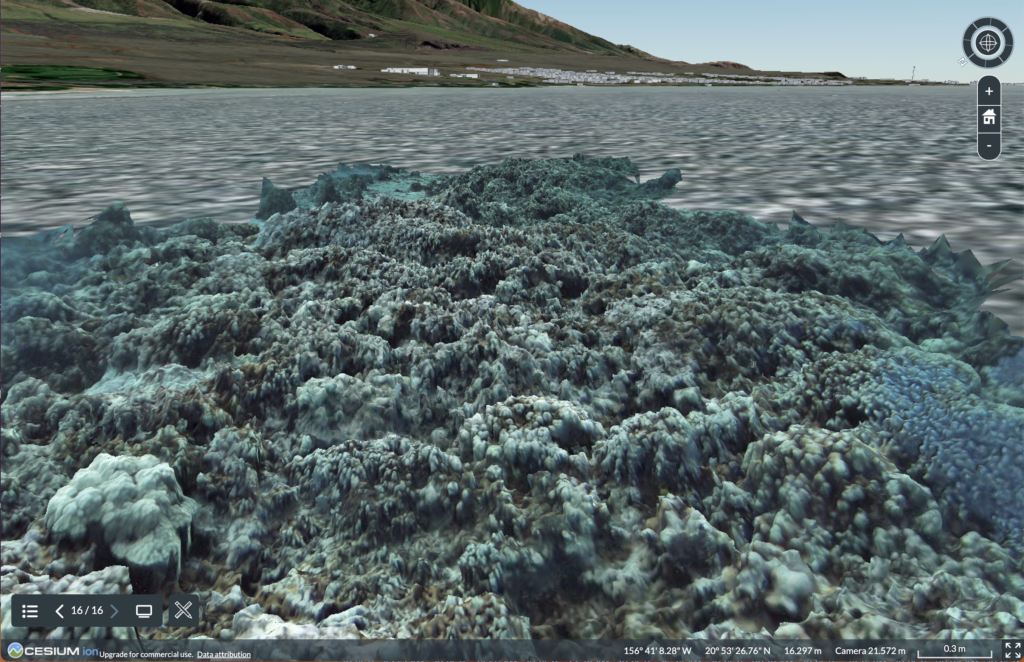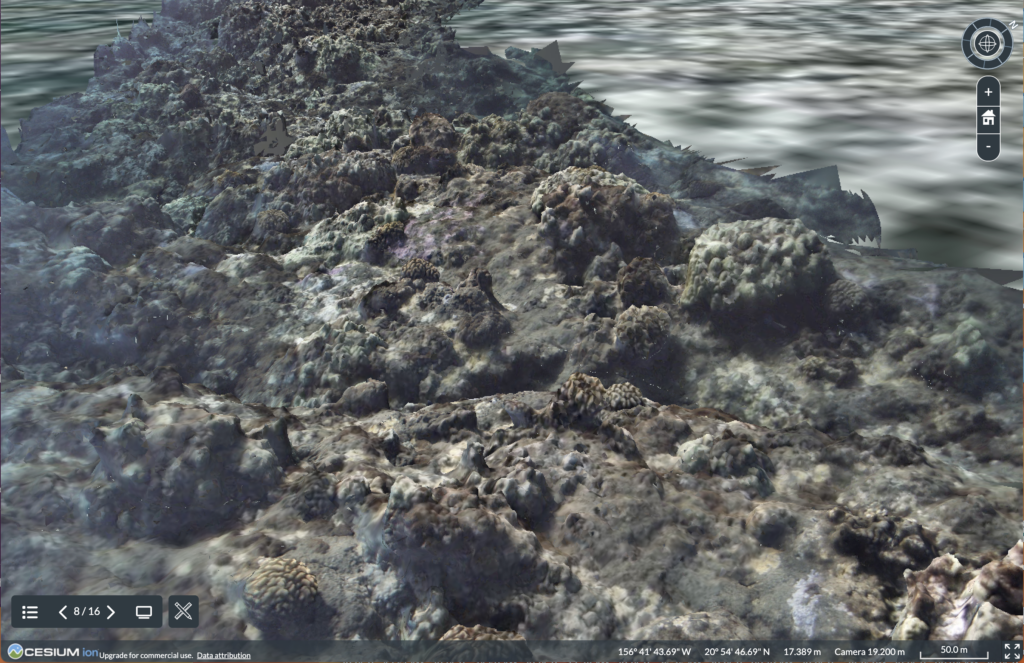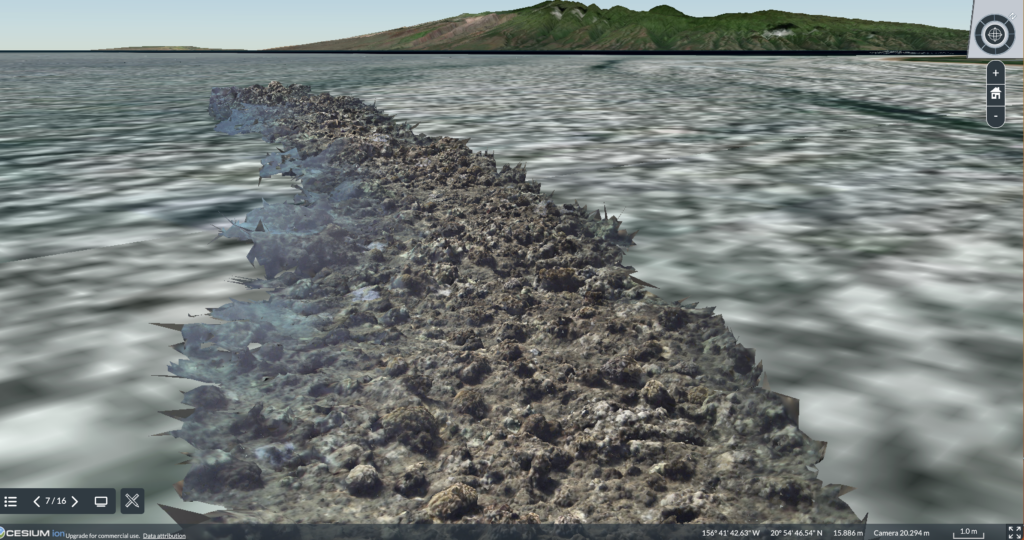Wildfire Response: Using Technology to Protect Lahaina’s Reefs
Following the devastating Lahaina wildfire, Maui Nui Marine Resource Council (MNMRC) launched a phased project last fall to study and monitor the fire’s impact on reef health near the burn zone. The project aimed to use 3D imaging technology to map and assess key reef sites, capturing “snapshots” before and after rainy season runoff. Rainy season, which typically runs from November – March on Maui, was expected to result in heavy storm runoff that would wash debris, toxins and other waste from the fire into the ocean.
Phase One: Assessing Lahaina’s Reefs In September 2023, just a few weeks after the fire and well before major runoff entered nearby waters, MNMRC collaborated with Australian start-up Flying Fish Technologies (FFT) to take 800,000 images of priority reef sites which were then used to generate 3D maps. According to MNMRC Science Director John Starmer, leveraging the cutting-edge technology offered by FFT “allowed us to collect information about reefs in South and West Maui more quickly, safely, and cost-effectively across more reef area than by using the traditional approach of diver surveys.” FFT also trained and applied a machine-learning algorithm to the underwater footage of the reef sites to count and identify coral and fish species around Lahaina. When a diverse mix of corals and fish are found in enough numbers, it almost always means a reef is healthy but when the numbers and diversity are low, the opposite can be expected. Scientists can use this new algorithm to study reef health over time to determine whether action is needed to help a struggling reef recover.



3D map of reefs in Lahaina before toxic debris, runoff, and other waste from the fire washed into the ocean. (Photo Credit: Flying Fish Technologies)
Footage of reef site using FFT’s underwater drone, the Vertigo3 glider. (Video Credit: Flying Fish Technologies) Phase Two:
Revisiting Lahaina’s Reefs
In early August, MNMRC is set to partner with FFT once again to resurvey the reef sites. During the height of the rainy season this past January, heavy rains washed significant amounts of toxic runoff into the ocean. It is critical to see how this runoff has impacted reef and fish populations at the sites initially surveyed in September 2023. As more time passes, it becomes increasingly difficult to distinguish recently dead coral from coral that has been dead for some time and be able to assign cause. At present, coral populations at key sites should either be recovering from the negative effects of the runoff events or the coral will have died. By comparing 3D maps, MNMRC can evaluate how the reef sites have changed due to the fire and by extension, better understand how to protect the reef against further damage. No precedent exists for an urban wildfire event occurring so close to a reef and there is no easy way to predict how the fire’s aftermath may impact overall reef health and the fragile ecosystems along the coastline and near shore waters. Completing this important project provides a way to study, compare and note changes to the affected sites as well as detect changes in coral cover and fish/invertebrate abundance. Findings can then be used to create actionable solutions to protect and restore impacted marine ecosystems. MNMRC is committed to sharing research findings with the Maui Nui community as we continue to work together to care for and protect our fragile coral reefs and support Lahaina’s near shore ecosystem.
Contribute to the Reef Monitoring Project
This project is funded through a combination of grants and generous donations from our community. FFT has graciously agreed to donate $30,000 in time, equipment, and expertise once again to complete the second half of this project. MNMRC welcomes additional donations to cover operational and logistical expenses including boat fees and accommodations for the FFT team in August. To donate to this project, use the form below.
The form is not published.



No Comments
Sorry, the comment form is closed at this time.